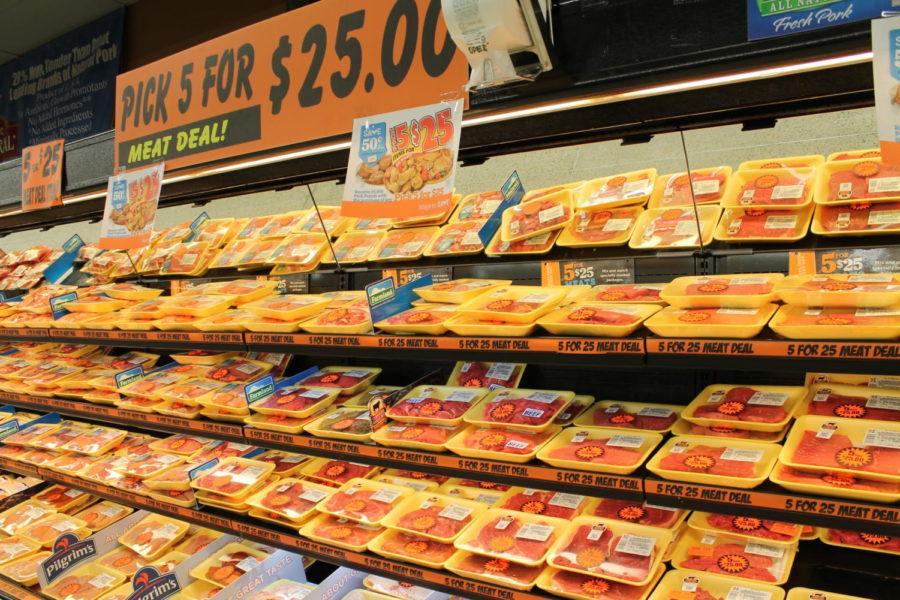Iowa State to receive grant from FDA
Richard Martinez / Iowa State Daily
In reaction to the new rules, major meat producers have argued that the new rules would be costly to implement and would reduce the demand for meat from other countries. The rules do not affect domestic meat products.
March 11, 2016
Iowa State is set to receive a very competitive grant from the Food and Drug Administration for extension and outreach programs.
The FDA came out with the Food Safety Modernization Act in 2011, which will play a role in the grant and how the money is used.
The 50 new regulations from the act will help strengthen domestic and international growers. It hopes to try and prevent foodborne illnesses before they become a problem.
“It’s always better to be proactive instead of reactive,” said Stephanie Hice, graduate student in food science and human nutrition. “A lot of companies have a plan for if something happens, but hopefully this grant will help put the focus on preventing outbreaks before they happen.”
In addition to preventing future outbreaks, the act is also taking food production into the equation.
“FSMA is aimed at strengthening education about how to handle food safely, making sure that our oversea growers reach the U.S. standards for safety and to give detail-oriented education through extension people,” said Angela Shaw, assistant professor of food science and human nutrition. She was chosen to spearhead the program.
“We are going to be a central place to make sure food grower management will get proper training.”
The grant is to be used to create training resources for unrepresented growers and food manufacturers, targeting those who need assistance to come into compliance.
Larger companies will have their own resources to comply with the regulations but they have to make the deadline in September. Small companies and farmers will need the assistance of the grant, but have about four years to meet the requirements.
The act called for a national center and four regional centers. The extension center at Iowa State will be the hub for the 12 states of the North Central region of the United States; including North and South Dakota, Nebraska, Kansas, Minnesota, Iowa, Missouri, Wisconsin, Illinois, Michigan, Indiana and Ohio.
The grant itself is very competitive.
“They called for applicants for this grant, so we assembled a team that represents the best of the region and submitted it,” Shaw said.
“This is an advantage for Iowa State because it shines the spotlight on the department and the amazing programs we have here,” Hice said. “And of course, science is expensive so any advancement of low-cost method of detection is going to be beneficial to us as a society.”
The farmers affected by these new regulations depend on size, which is based on the number of employees or revenue, and what they grow as well as documentation and what special training is already used.
Fruit and vegetable farmers and farmers who grow grains for human and animal consumption — domestically and internationally — will be affected.
Shaw has high hopes.
“We’re here for people to help make a strong Iowa, fed holistically,” Shaw said. “We’re teaming up with the Land Grant Committee, so it’ll be research based. We really are just here for the people.”
















